The 26th
LaureateTheatre/ Film
Athol Fugard
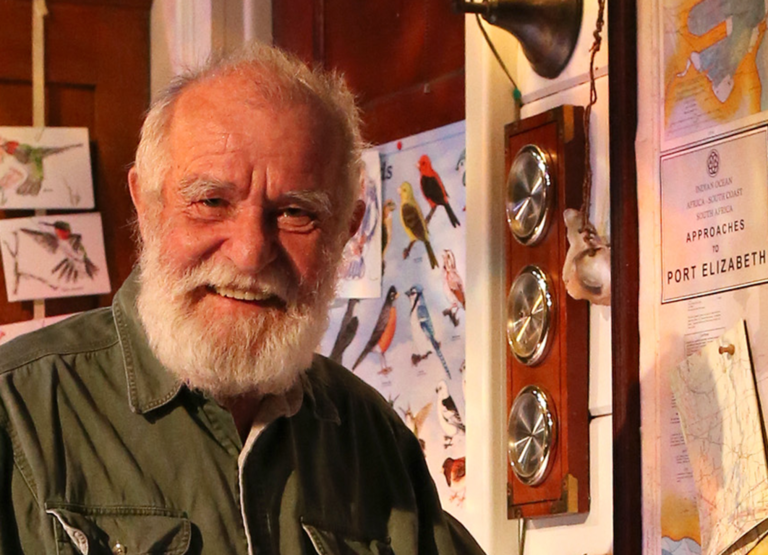
Playwright,actor and director,Athol Fugard was born in 1932 in South Africa to an English father and an Afrikaner mother. Describing himself as “an Afrikaner writing in English,” he became well known internationally for such anti-apartheid works as Blood knot (1961),The Island (1973) and Mr. Harold…and the Boys (1982). The passion in his works stems from a deep sense of justice and a feeling of personal moral responsibility to give voice to the weak and voiceless – in turn giving his plays universal meaning. From the early 1960s onwards,Fugard’s plays have been performed around the world,establishing him as a major artist. His first novel,Tsotsi (1980) was made into a film that won the Academy Award for the Best Foreign Language Film in 2006 and he received the Tony Award for Lifetime Achievement in the Theatre in 2011. In April this year,his latest play The Shadow of the Hummingbird premiered in America,with Fugard appearing on stage in an acting role for the first time in 15 years. Fugard is the first artist from the African continent to receive the Praemium Imperiale.
Biography
It is commonly said that South African born Athol Fugard's works are more frequently performed than any other playwright − other than Shakespeare. He is also known as being a voracious opponent of the apartheid regime,but the essential value of his many works is that he is driven by a deep sense of justice and feeling of personal moral responsibility to tell the stories of the "nameless people," to express their emotions and to give them a voice.
Fugard was born to an English-speaking father and an Afrikaner mother in Middelburg,a small town in the heart of South Africa,moving later as a young boy to the more cosmopolitan Port Elizabeth.
He describes his mother,Elizabeth,as a simple soul who was blessed with an incredibly powerful sense of justice. "She pointed out the injustices that were there to be seen on every street in any city in South America,caused by apartheid. She was the dominant influence in making me realize it." His language ability,he attributes to having had the influence of the linguistic mix of his father's English and mother's Afrikaans.
Blood Knot (1961) was Fugard's first play to be recognized internationally,being performed in New York (1964) and later,in 1967,filmed by the BBC in London. From the late '50s Fugard worked in multi-racial theatre,forming in the early '60s,The Serpent Players with a group of black actors. Under the strict apartheid laws of the time,white and black actors were not supposed to work on stage together and consequently he often faced persecution and restrictions of movement from the intolerant regime.
Despite the difficulties,he continued to write,act,direct and explore through his improvisation and collaboration with other actors,different ways of creating plays of meaning.
The list of his works is breathtaking. Sizwe Bansi is Dead (1972) and The Island (1973) were followed in the '80s by works such as the intensely personal Master Harold and the Boys (1982) and The Road to Mecca (1984). His first novel,Tsotsi (1980) was adapted for film and won the Academy Award for Best Foreign Language Film in 2006 and he received the Tony Award for Lifetime Achievement in the Theatre in 2011.
Fugard's post-apartheid plays have not lost any of their earlier passion or defense of the common man. As he says,apartheid may have been abolished,but South Africa still suffers from the existence of prejudice,poverty and corruption. Plays such as the Train Driver (2010) continue to explore complex and difficult situations.
In April this year,his latest play The Shadow of the Hummingbird was premiered in U.S.A. For the first time in fifteen years,Fugard returned to the stage,taking the central role in a work that he describes as a "celebration". It explores his personal relationship with his much loved grandson − celebrating their life and striking a different note from his previous works.
At the age of 82 he still regards himself as "a storyteller," one who is still driven by the desire to tell stories about people. He says that he is already thinking of two plays that he wants to write,saying,"the adventure goes on and I think the best thing really to say about it all is that I just hope I get buried with a piece of paper in one hand and my fountain pen in the other." Athol Fugard is the first artist from the African continent to receive the Praemium Imperiale.
Chronology
First visit to Japan
-

Rehearsal of The Shadow of the Hummingbird
-

Tsotsi
-
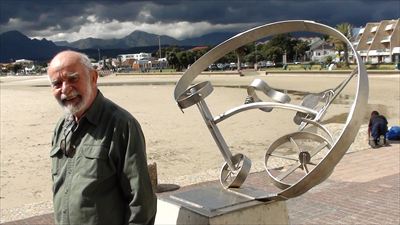
Gordons Bay, South Africa
-
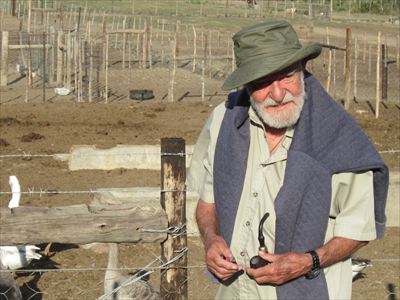
In the village of Nieu-Bethesda
-
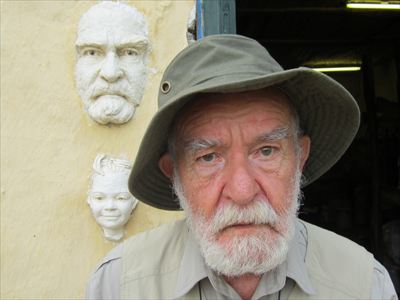
Standing next to a sculpture of himself
-
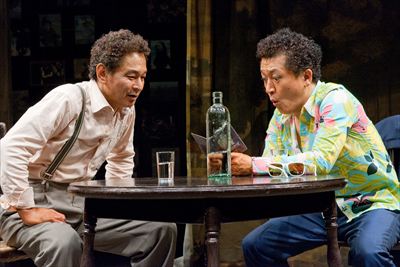
Sizwe Banzi Is Dead

